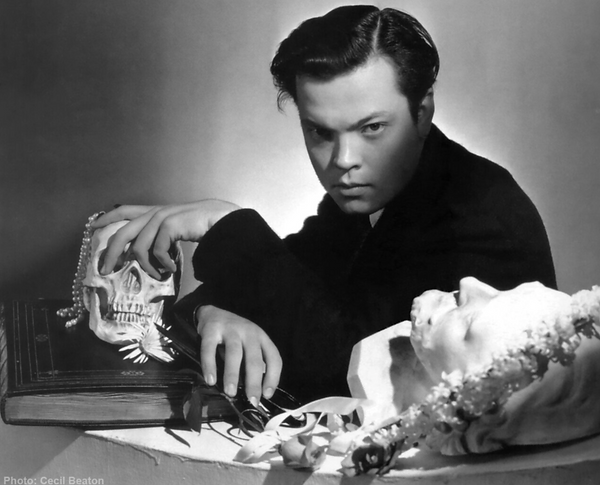
DEFUNDING, ORSON WELLES.
Orson Welles… as the saying goes, if you know, you know. But that my dear reader is precisely the question. How well do you know that name? You might have heard the name associated with one of the greatest films of all time, Citizen Kane. A film so monumental that filmmakers & cinephiles of all backgrounds, blush just thinking about it. You might have heard, read, seen, etc. that this name belonged to the man who many (myself included) regard as not only the Father of all independent filmmaking, but arguably the greatest independent filmmaker of all time. Yes, many might think Hollywood and Welles were a match made in heaven but that is far from the case.

When Orson was young and untouchable
During his long career Welles only worked in Hollywood, if he absolutely had to and seldom by choice. Why? It all began in 1941, When Welles was first welcomed with open arms by RKO studios. Almost immediately (due to his age and inexperience as a filmmaker up until then), there was animosity and doubt surrounding his methods. After all, giving this young rebel, a deal to make 3 films with final cut approval, was a totally radical notion. While Citizen Kane (his first feature film) might have eventually catapulted Welles into the stratosphere of legends, it also destroyed any chance he had at making a film that came close to matching its greatness. I suppose that is what happens when you make a film, highly offensive to the sensibilities of a certain newspaper magnate, or in this case William Randolph Hearst.

Hearst: No man did more to derail Orson’s career.
I’m not going to get into how Hearst was responsible for Citizen Kane’s initial failure and inadvertently, the downward trajectory of Welles’s career thereafter. However after the mediocre initial release of Kane and because of the controversy enveloping it, Welles had to relinquish something much more valuable to his career. Full creative control and ready access to funds needed to finance future dream projects. So Welles reacted the only way he knew how. He became nomadic. Once Welles realized the Hollywood wasn’t conducive to his success, he set flight for Europe, and continued to move about for much of the remainder of his life. The majority of time, his films were made on a shoe string budget. A budget that Welles put together, with money out of his own pocket (which lead to hard times) or by soliciting producers/anyone with money. Despite it all, many of his projects remained unfinished (because of budget issues) or were heavily edited (without consent), to match the desires of his producers. Which is a true tragedy. At the end of his life Welles was still working as hard as he could just to make a steady income. The film set was his home and so that was where most of his wealth went. It seems as though for Orson Welles, there would be no other way. Welles will always be remembered for his talent. He’s a direct influence on the career of any filmmaker worth his/her salt. Yet it was his devotion to his vision, his willingness to work on projects he had no attachment to, so that he could fund his own projects, which made Orson Welles the patron saint of all independent filmmakers. It’s also a lesson we could all take to heart, the next time we feel passed over, underestimated or as Welles was; defunded.

